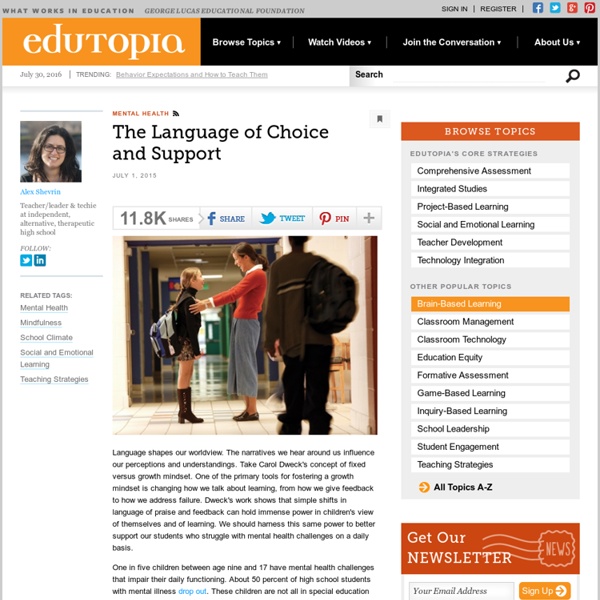The Language of Choice and Support

Are Your Choices Good Enough? - Michelle McQuaid
Are you worried that you’ll make the wrong choice today? It might be a decision that is life changing – like to stay or leave your current job – or something must simpler – like which route will be the fastest way to get work. But with more information available to us than ever before, the truth is that it’s become increasingly difficult to feel confident that we’re making the right choices and studies suggest that this is impacting our happiness and wellbeing. “The fact that some choice is good and gives you a feeling of freedom and power, doesn’t necessarily mean that more choice is better,” said Barry Schwartz, from Swarthmore College and author of The Paradox of Choice when I interviewed him recently. Barry suggests that the key is understanding how much freedom of choice serves you well in different situations. If you’re out to get the best outcome from whatever decision you’re making, then you need to examine all of your options. What choices will you make today?
What to Do When You Have Too Many Ideas (And Not Enough Time)
What do you do when you have too many ideas and not enough time? Or similarly, what about when you have too many tasks and not enough energy? As an entrepreneur, I feel like I've been battling this issue for awhile. There is always another opportunity to chase or a new product idea that sounds exciting. However, during a recent conversation with Travis Dommert, I learned about a new strategy for dealing with the issue of having too many ideas and projects. It all comes down to treating your life like a rose bush. Let me explain what Travis taught me… Before we talk about how to get started, I wanted to let you know I researched and compiled science-backed ways to stick to good habits and stop procrastinating. Ideas are Like Rose Buds As a rose bush grows it creates more buds than it can sustain. You see, a rose bush isn’t like a tree. Ideas are like rose bushes: they need to be consistently pruned and trimmed down. Just like the rose bush, we face constraints in our lives. The Bottom Line
Your First Choice is Rarely the Optimal Choice: 5 Lessons on Being Wrong
As a rule, we are incredibly hard on ourselves when it comes to making big decisions in life. If our first five relationships end with a break up, we think we’re destined to be alone forever.If we go to school, get a degree, and spend years training for a job that we end up hating, we feel like a failure for not having it all figured out.If we have a dream of writing a book or starting a non-profit or creating something of value and we stumble on the first try, we say that we’re not cut out for this. In cases like these, when we are attempting to do something that is complex and multi-faceted, I believe that being wrong is actually a sign that you’re doing something right. Here’s why… First Choice vs. For some reason, we often expect our first choice to be the optimal choice. For example… Finding the right person to marry. 5 Lessons On Being Wrong Being wrong isn’t as bad as we make it out to be. 1. 2. 3. 4. 5. Your first choice is rarely the optimal choice.
Related:



